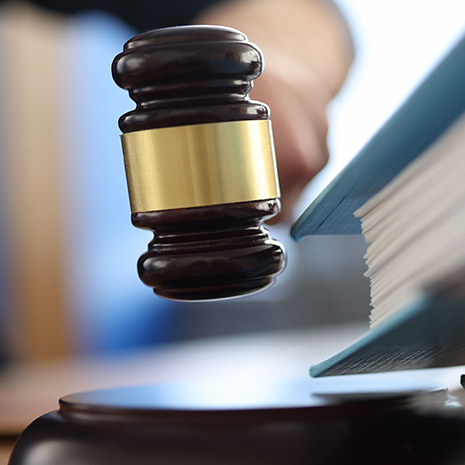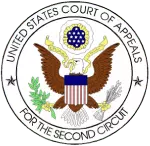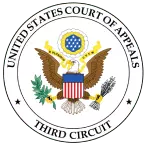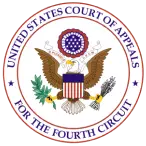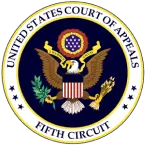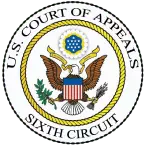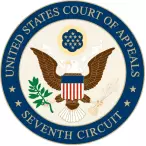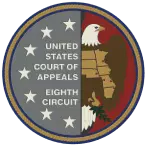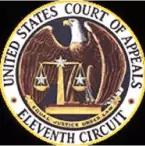This is particularly significant in federal criminal cases where convicted individuals can appeal their convictions and sentences. The appeals court reviews the case to identify any legal errors that could have impacted the trial outcome.
If such errors are found, the appeals court may reverse the conviction and return the case to the district court for retrial.
If you or someone you love is serving time for an unjust conviction or sentence, don’t try to handle it alone. You need a federal appeals lawyer who knows the ins and outs of the Court of Appeals and will work tirelessly to defend your rights and freedom.
Contact us today to discuss your case.

About the Third Circuit Court of Appeals
Established on June 16, 1891, The Third Circuit Court of Appeals is located in Philadelphia, Pennsylvania, and houses 25 circuit judges who hear various appellate cases. The court resides inside the James A. Byrne United States Courthouse.
Contact Information
Address
601 Market Street
Philadelphia, PA 19106
Phone
Clerk’s Office: (215) 597-2995
Hours of Operation
8:30 a.m. – 5:00 p.m.,
Monday through Friday (excluding federal holidays)
Website
Third Circuit Court of Appeals Judges
- Chief Judge Michael A. Chagares
- Judge Kent A. Jordan
- Judge Thomas M. Hardiman
- Judge Joseph A. Greenaway, Jr.
- Judge Patty Shwartz
- Judge Cheryl Ann Krause
- Judge L. Felipe Restrepo
- Judge Stephanos Bibas
- Judge David J. Porter
- Judge Paul B. Matey
- Judge Peter J. Phipps
- Judge Arianna J. Freeman
- Judge Tamika R. Montgomery-Reeves
- Judge Cindy K. Chung
- Judge Walter K. Stapleton
- Judge Anthony J. Scirica
- Judge Robert E. Cowen
- Judge Richard L. Nygaard
- Judge Jane R. Roth
- Judge Theodore A. McKee
- Judge Marjorie O. Rendell
- Judge Thomas L. Ambro
- Judge Julio M. Fuentes
- Judge D. Brooks Smith
- Judge D. Michael Fisher
Federal Criminal Appeals in the Third Circuit Court of Appeals
The Third Circuit Court of Appeals hears various cases, including criminal appeals for federal offenses such as:
- Bank & mortgage fraud
- Drug trafficking
- Firearm convictions
- Healthcare fraud
- Hobbs Act & public bribery corruption
- Mail & wire fraud
- RICO & conspiracy
- Securities fraud
- Tax fraud
- White-collar crime
The Third Circuit Court of Appeals is an important institution in the federal judiciary system, particularly in the states it covers. If you or a loved one has been convicted of a federal crime, it is essential to seek the help of a seasoned federal appellate attorney with experience arguing cases before this court.
The attorneys at Elizabeth Franklin-Best can help you navigate the complex appeals process and provide the guidance and support you need to achieve the best possible outcome for your case.
Criminal Appeals Process in the Third Circuit
Once a person has been convicted in the federal district court, an individual or their family can appeal that conviction and sentence to the appropriate appellate court, such as the Third Circuit Appeals Court.
The appeals process typically involves the following:
- Notice of appeal — If an individual or their family wants to appeal the conviction, they must file a notice of appeal with the appropriate appellate court, such as the Third Circuit Appeals Court.
- Record on appeal — Once the notice of appeal has been filed, the lower court will assemble the “record on appeal,” which includes all relevant legal documents and transcripts from the trial.
- Briefing — The individual or their family, through their attorney, will submit a written brief to the appellate court outlining the legal arguments for why the conviction should be overturned.
- Oral argument — The appellate court may schedule an oral argument, where the individual’s attorney will present their arguments before a panel of judges.
- Appellate court decision — The appellate court will review the lower court’s decision and arguments presented by both sides to determine whether any legal errors or constitutional violations occurred during the trial.
- If the appellate court finds in favor of the individual, it may overturn the conviction and remand the case for a new trial or sentencing.
- If the appellate court upholds the lower court’s decision, the individual or their family may appeal further to the Supreme Court.
The federal criminal appeals process can be lengthy and complex. However, having the support and guidance of an experienced federal appellate attorney like Elizabeth Franklin-Best can help ensure that individuals and their families have the best possible chance of success in their appeal.
Why You Need a Third Circuit Federal Appellate Attorney
Appealing to the Third Circuit Court of Appeals can be beneficial in many ways. It is an opportunity to have the conviction or sentence reviewed and potentially overturned, which can positively impact the individual’s life.
However, successfully challenging a conviction or sentence is not an easy feat. Federal criminal appeals are a highly specialized area of law, and navigating the complex rules and procedures of the appellate process can be challenging for those without legal training.
Appellate courts have strict rules and procedures that you must follow, and even a small mistake in legal filings or arguments can lead to a case being dismissed or an appeal being denied.
By working with Elizabeth Franklin-Best, you can have peace of mind knowing that you have an experienced appellate attorney on your side. Our team has years of experience representing clients in federal criminal appeals cases and deeply understands the complex legal issues involved.
We will work tirelessly to protect your rights, navigate the complex appellate process, and present compelling legal arguments to the Third Circuit Appeals Court.
Contact Elizabeth Franklin-Best Today
Take action now and contact our federal appeals lawyers to help you navigate the complexities of a federal criminal appeal. The damage may have been done, but this is not the end of your fight for justice.
You still have options, and a skilled attorney can help you explore them. Don’t let a conviction or sentence define you. Contact us today to protect your rights and fight for your freedom.
FAQ: Third Circuit Criminal Appeals
Do I need an attorney to handle my appeal?
While you have the right to represent yourself on appeal, it is highly recommended to seek the assistance of an experienced appellate attorney. Appellate procedures are complex, and having legal expertise can greatly improve your chances of success.
What issues can I raise in my appeal?
You can raise various issues on appeal, such as errors in the trial court’s rulings, incorrect application of the law, constitutional violations, or claims of ineffective assistance of counsel. It is essential to consult with an attorney to determine the best legal arguments for your specific case.
How long does the appeal process take?
The appeal process can vary in length, depending on the complexity of the case and the court’s caseload. It can take several months to over a year for a decision to be reached.
What happens during the appeal process?
After filing the Notice of Appeal, you will need to prepare a written brief outlining your legal arguments. The government will also submit a brief in response. The court may then schedule oral arguments, during which you and the government’s attorney present your case before a panel of judges. Following oral arguments, the court will issue a written decision.
What does it mean to appeal a federal conviction to the Third Circuit Court of Appeals?
When you appeal a federal conviction to the Third Circuit Court of Appeals, you are asking the court to review the trial court’s decision and determine whether any errors were made that affected your rights or the outcome of your case.

